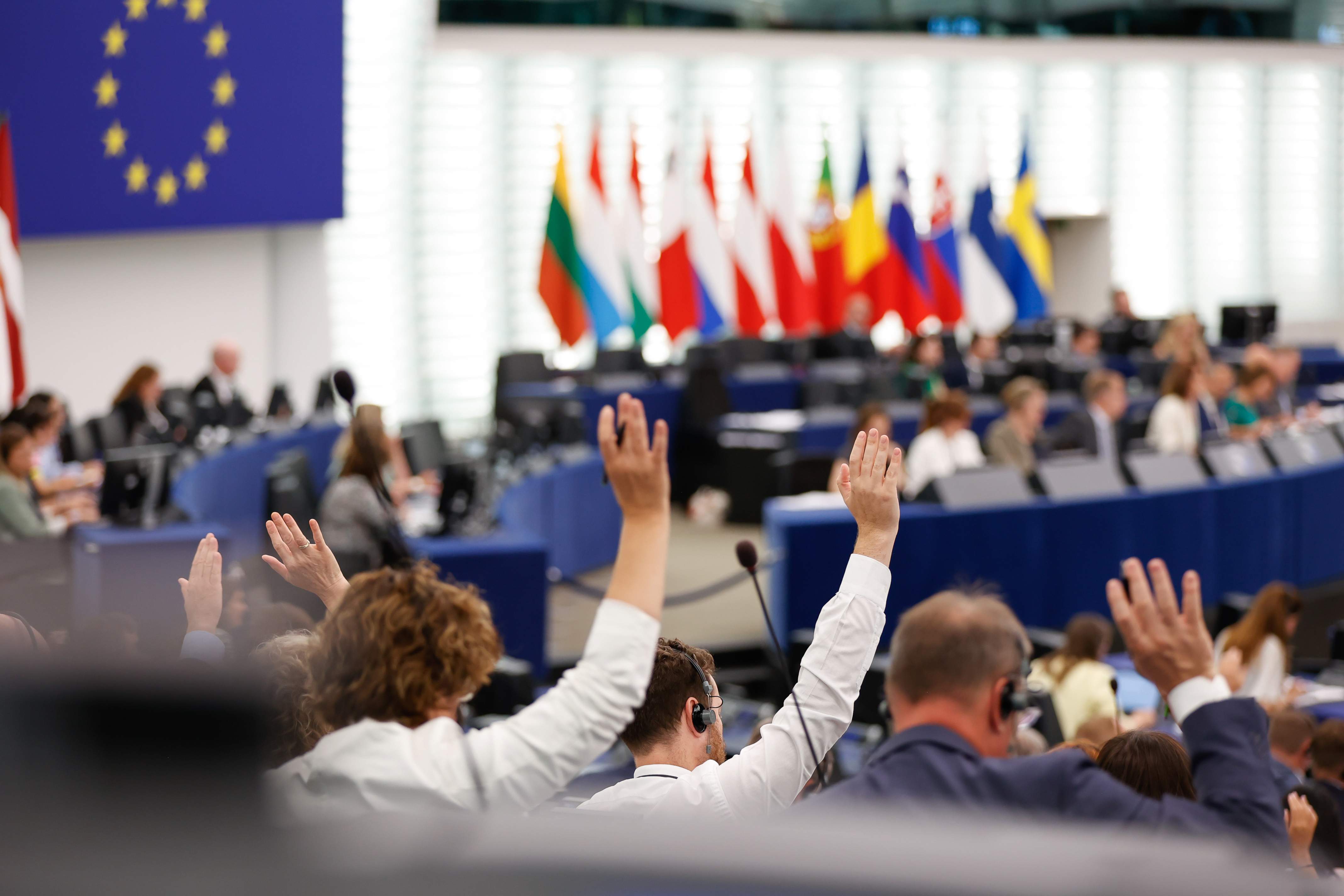The European Parliament will ask Spanish judicial authorities to investigate "in an effective way" the "alleged connections" of Catalan MEPs who have been associated with the Kremlin and Russia's attempts to "destabilize and interfere in the European Union and its member states". In a vote held this Thursday in the plenary session at Strasbourg - with 433 votes in favour, 56 votes against and 18 abstentions - MEPs have passed a resolution in which they express their "extreme concern" for the "possible relations" between the Catalan independence movement and the Russian administration, as well as "the large-scale disinformation campaigns that Russia has promoted in Catalonia". The motion arose after the espionage accusations directed specifically at the Latvian MEP Tatjana Zdanoka, leading to a broader discussion of the risks of Russian espionage and misinformation, in which the Spanish right managed to move amendments calling for investigation of supposed Catalan-Russian links. This Thursday evening, Catalan MEP Carles Puigdemont has sent a statement (published in English by ElNacional.cat) to all members of the European Parliament to warn them that the alleged Russian plot against him is “a conspiracy theory” of the PP constructed with false data as part of a partisan strategy.
The resolution, promoted by the European People's Party and the liberals of Renew Europe asserts that the alleged Russian interference in Catalonia was part of a "broader" strategy by the Kremlin to promote internal divisions within the European community. Thus, the Parliament in Strasbourg urges national authorities to investigate the links it mentions, as well as condemning "all attacks on judges who investigate activities of interference".
Amendments by PP and Cs
At the amendment stage, the People's Party (PP) and Ciudadanos (Cs) introduced some changes in the text to include explicit references to Catalan independence. In the section referring to the context, Spanish PP representative Javier Zarzalejos managed to get the name of Carles Puigdemont included in the draft, noting that several journalistic reports point to alleged meetings between the ex-president and the ex-Russian diplomat Nikolai Sadovnikov before the 2017 Catalan referendum.
On the Cs side, MEP Adrián Vázquez recalled that the Latvian MEP investigated for Russian interference, Tatjana Zdanoka, was in favour of granting an amnesty to Catalan leaders. At the same time, the European Parliament is to request - through an amendment introduced by Cs - that the matters relating to Catalan MEPs be referred to the Consultative Committee on the Conduct of Members.
The vote on the proposed resolution was passed with support from the majority of the Socialists and Greens, as well as the votes in favour of the European People's Party, Renew Europe, the European Conservatives and Reformists. At the same time, both Socialists and Greens voted in favour of Cs' amendments, although they voted against the amendments introduced by the PP.
Russian interference in the European Union
The context of the vote on the resolution is that it takes place two days after the chamber held a debate to discuss Russian interference in the European Union. The exchange of views was organized following the start of an investigation by the Parliament into the Latvian MEP Tatjana Zdanoka, whom journalistic revelations have asserted to be a collaborator and transmitter of information to Russian security services.
In the debate, parties such as the PP and Cs also referred to the Catalan independence movement, asking that the Parliament also include Carles Puigdemont in its list of those to be investigated. In fact, the European Commission, through vice-president Margaritis Schinas - member of the EPP - warned during the plenary of "regular contacts" and "organized visits" between "a group of Catalan secessionists" and Russian officials between the years 2017 and 2020. Junts MEP Toni Comín assured that the accusations were "false" and defended that one of the goals of the independence movement is to work for a Catalonia that is part of a "more integrated" European Union.
Response from Carles Puigdemont
This Thursday evening, Carles Puigdemont sent a statement to all members of the European Parliament to warn them that the alleged Russian plot against him is “a conspiracy theory” of the PP constructed with false data as part of a partisan strategy. “The construction of the case relating to the so-called Russian plot has many similarities with the construction of the conspiracy theory over the Madrid bomb attacks of March 11th, 2004,” Puigdemont said in the article “If we had made Feijóo prime minister, all this would not be happening,” published in ElNacional.cat, which has been sent to the European parliamentarians. The president in exile points out that the controversial accusations in which he has been embroiled in recent months would not have occurred if instead of supporting Pedro Sánchez, his party Together for Catalonia (Junts) had made Feijóo prime minister". "We know a lot about dirty war, and we know that those who have interfered most in Spanish democracy have been precisely the patriotic police, the patriotic judges and the systemic corruption of the PP," warns Puigdemont in the article.

